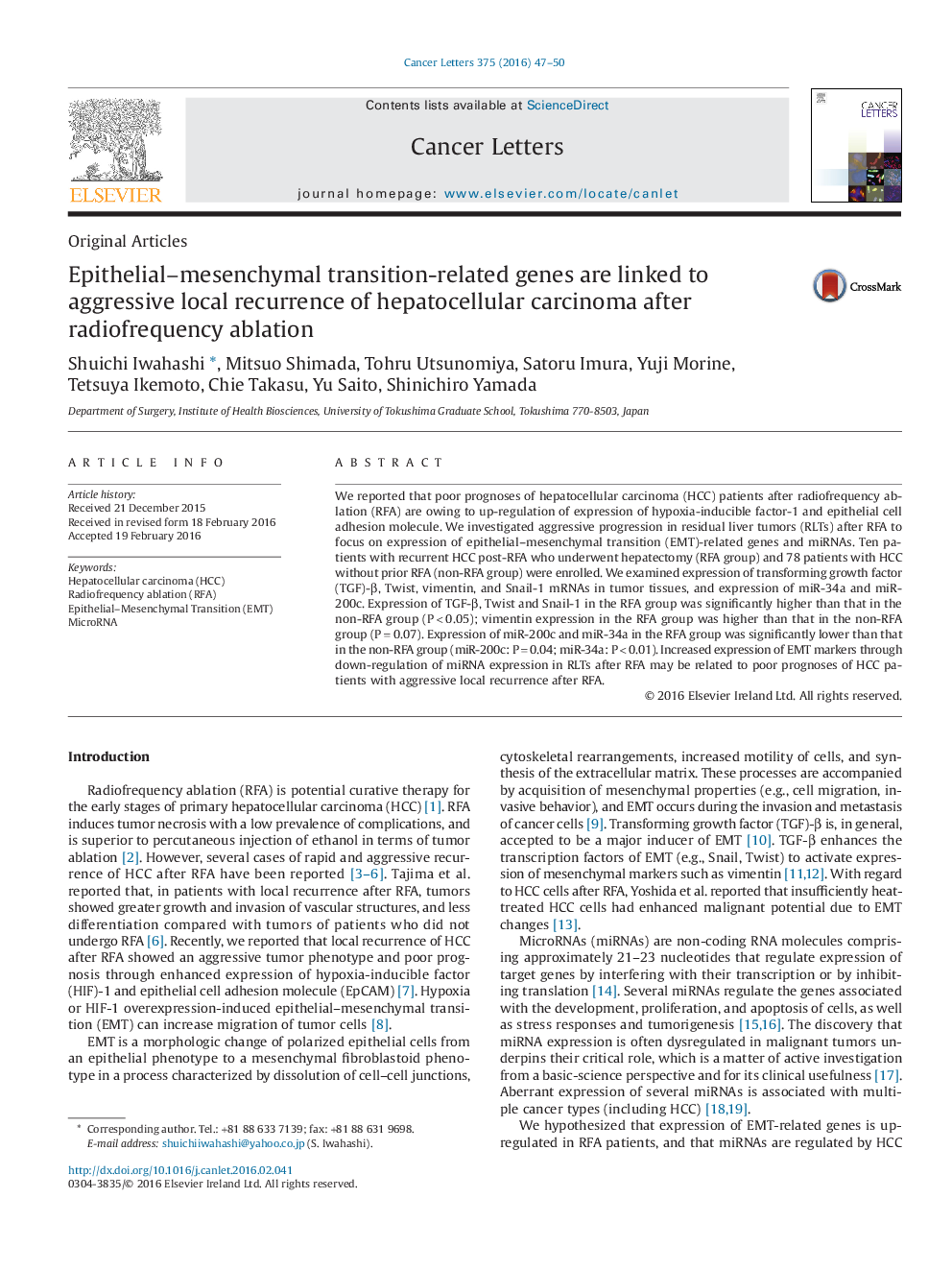| Article ID | Journal | Published Year | Pages | File Type |
|---|---|---|---|---|
| 10901346 | Cancer Letters | 2016 | 4 Pages |
Abstract
We reported that poor prognoses of hepatocellular carcinoma (HCC) patients after radiofrequency ablation (RFA) are owing to up-regulation of expression of hypoxia-inducible factor-1 and epithelial cell adhesion molecule. We investigated aggressive progression in residual liver tumors (RLTs) after RFA to focus on expression of epithelial-mesenchymal transition (EMT)-related genes and miRNAs. Ten patients with recurrent HCC post-RFA who underwent hepatectomy (RFA group) and 78 patients with HCC without prior RFA (non-RFA group) were enrolled. We examined expression of transforming growth factor (TGF)-β, Twist, vimentin, and Snail-1 mRNAs in tumor tissues, and expression of miR-34a and miR-200c. Expression of TGF-β, Twist and Snail-1 in the RFA group was significantly higher than that in the non-RFA group (Pâ<â0.05); vimentin expression in the RFA group was higher than that in the non-RFA group (Pâ=â0.07). Expression of miR-200c and miR-34a in the RFA group was significantly lower than that in the non-RFA group (miR-200c: Pâ=â0.04; miR-34a: Pâ<â0.01). Increased expression of EMT markers through down-regulation of miRNA expression in RLTs after RFA may be related to poor prognoses of HCC patients with aggressive local recurrence after RFA.
Keywords
Related Topics
Life Sciences
Biochemistry, Genetics and Molecular Biology
Cancer Research
Authors
Shuichi Iwahashi, Mitsuo Shimada, Tohru Utsunomiya, Satoru Imura, Yuji Morine, Tetsuya Ikemoto, Chie Takasu, Yu Saito, Shinichiro Yamada,
